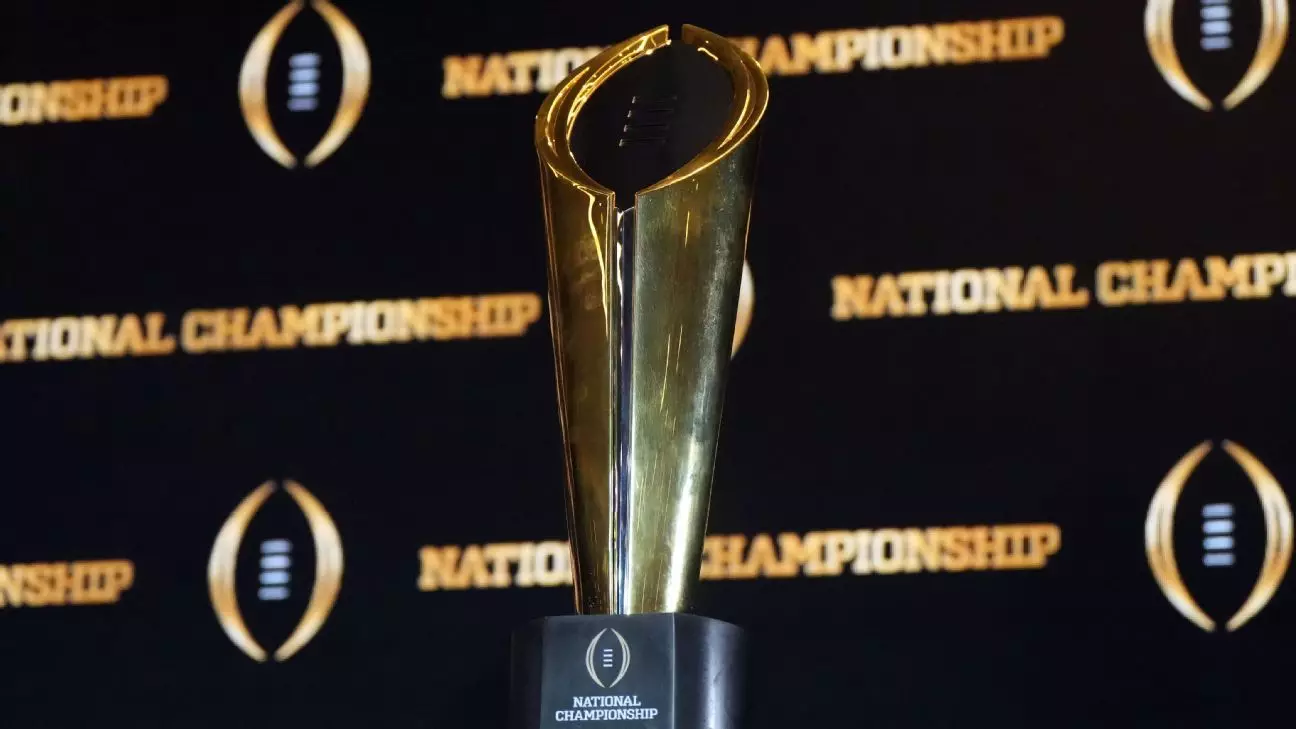College football is an immense spectacle that brings together fans, athletes, and institutions, weaving tight threads of tradition, competition, and excitement. However, unforeseen events can disrupt even the most meticulously crafted plans, as evidenced by recent developments in the College Football Playoff (CFP) scheduling. The controversy surrounding SEC commissioner Greg Sankey’s request to alter the dates of the Goodyear Cotton Bowl Classic and the Capital One Orange Bowl has ignited discussions about fairness, logistics, and safety.
Commissioner Sankey’s proposal stemmed from a sense of urgency following a tragic event in New Orleans that delayed the Allstate Sugar Bowl. This incident led to a high number of casualties and injuries, prompting a reevaluation of logistics surrounding the games. Sankey’s primary concern was for Notre Dame, which faced a tighter schedule compared to Penn State after the latter’s victory against Boise State in the Vrbo Fiesta Bowl. With a kick-off time of 7:30 p.m. ET on the same night, Sankey believed that Notre Dame’s shorter preparation window could disadvantage them against Penn State, who enjoyed an extended hiatus following their earlier game.
In a brief statement, CFP Executive Director Rich Clark dismissed the idea of flipping the schedules, citing complex logistical considerations as a major barrier. The concession to start the Sugar Bowl earlier was seen as a compromise to address the immediate safety concerns arising from the New Orleans incident. Such complexities illustrate how external factors, like tragedies or logistical challenges, can influence important sporting events, leading to difficult decisions on behalf of the governing bodies.
The Logistical Quandary
Adapting the scheduling of high-profile college football games poses substantial challenges. Changing the kickoff times would disrupt extensive planning that has already taken place, affecting everything from fan arrangements and hotel bookings to travel logistics for participating teams. In his discussions on “The Paul Finebaum Show,” Sankey acknowledged the intricacies involved, stating that the community’s established plans and stadium availability would further complicate any potential changes.
Clark emphasized the domino effect that shifts in scheduling could trigger. Not only would Texas and Ohio State face abrupt alterations, but fans who eagerly anticipate the games have already made their plans, relying on an established timetable. This highlights a significant aspect often overlooked in the heated debates surrounding sports competitions: the fans, whose dedication and logistical arrangements can be severely impacted by last-minute changes.
Sankey’s comments bring forth a larger conversation about adaptability in the face of unforeseen circumstances within the sport. When unexpected tragedies occur, leagues and organizations must respond constructively while maintaining fairness for all participants. His words emphasized a crucial aspect of sports: the ability to adjust strategies on the fly. Much like a team making changes during halftime, navigating through difficulties requires an open mind and flexibility.
As commissioners and officials discussed whether to accommodate Sankey’s request, the conversation evolved from logistical matters to broader discussions about the nature of competitive sport and the inherent unpredictability that accompanies it. Although the refusal to change the schedule may seem disappointing to some, it reflects a commitment to fairness and adherence to established protocols, which are vital in maintaining order in college athletics.
Ultimately, the recent scheduling controversy pertaining to the CFP serves as a testament to the delicate balance between tradition, safety, and logistics in college football. While commissioner Greg Sankey’s petition illustrated a genuine concern for the competitive integrity of the matchups, the response from CFP officials highlights the difficulties in altering established schedules. Moving forward, such incidents must serve as reminders of the impact external factors can have on sports and the importance of effective communication among all stakeholders involved. As college football continues to evolve, adaptability and attention to detail will remain paramount in navigating the complexities that arise, ensuring a fair and exciting competition for all teams and their dedicated fan bases.



Leave a Reply